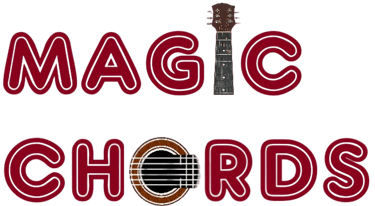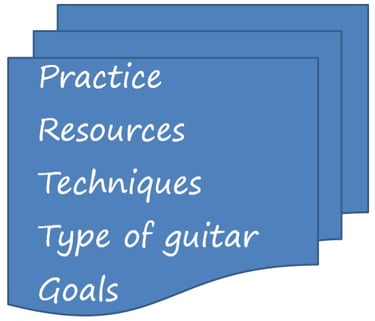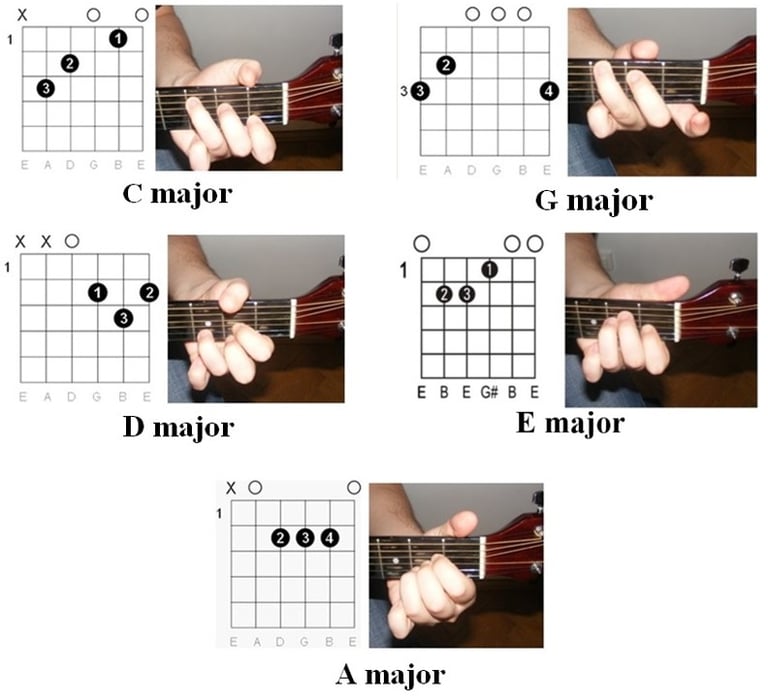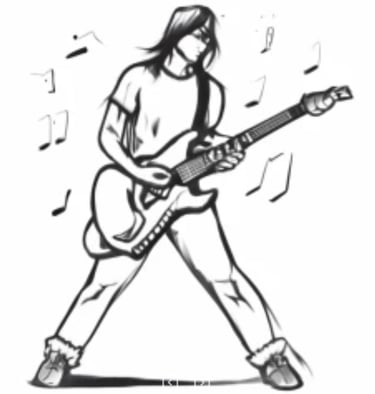
How long it takes to learn to play the guitar?
Find out how long it takes to learn to play the guitar! Discover the factors that influence your guitar learning journey, from practice routines to goals!
magicchords.com


Learning to play the guitar is an exciting journey that varies greatly from person to person. The time it takes depends on factors such as practice frequency, dedication, and personal goals.
Mastering the Strings: Understanding Your Guitar Learning Timeline
🎸 CONTENT:
1. Factors That Influence Your Guitar Learning Timeline
2. Setting Realistic Goals for Guitar Practice
3. Beginner Basics: What You Can Learn in the First Month
4. Advanced Techniques: When Will You Master the Guitar?
5. How Practice Frequency Affects Your Progress


Beginners can learn basic chords and simple songs within a few weeks, while mastering advanced techniques may take years. Consistency and focused practice are key to steady progress. Whether you aim to strum along to your favorite tunes or become a skilled performer, setting realistic expectations and enjoying the process will keep you motivated. With patience and effort, anyone can develop the skills to play guitar beautifully over time.
Factors That Influence Your Guitar Learning Timeline
The time it takes to learn guitar depends on several factors unique to each person. One of the most important aspects is the amount of time and effort dedicated to practice. Regular and focused practice sessions often lead to faster progress. The quality of instruction also plays a vital role; having a skilled teacher or access to structured learning resources can significantly enhance the learning experience. Your musical goals influence the timeline as well. Learning a few chords for simple songs can happen quickly, while mastering advanced techniques requires more time and dedication.


Previous musical experience can also be an advantage, as it often makes understanding rhythm, melody, and finger coordination easier. The type of guitar and genre of music you choose may impact your progress. Acoustic guitars, for example, might require stronger finger techniques, while electric guitars can be easier for beginners. Staying motivated, maintaining consistency, and enjoying the process are the most critical factors in making steady progress.
Setting Realistic Goals for Guitar Practice
Setting realistic goals for guitar practice is essential for making steady progress and staying motivated. Start by identifying what you want to achieve, whether it’s playing your favorite song, mastering basic chords, or learning advanced techniques. Break larger goals into smaller, manageable milestones that can be achieved over time.
Learn to Play Guitar: Your First Chords and Essential Tips


Focusing on consistent practice is more effective than long, sporadic sessions. Aiming for short daily practice ensures gradual improvement and prevents burnout. It’s important to be patient and understand that progress varies for everyone. Celebrate small achievements, like learning a new chord or mastering a simple strumming pattern, to stay encouraged. Flexibility is key, as challenges and plateaus are a natural part of learning. Adjust your goals if needed, and focus on enjoying the process rather than rushing the outcome. Setting achievable, step-by-step goals helps build confidence, making the guitar journey enjoyable and rewarding.
Beginner Basics: What You Can Learn in the First Month
The first month of learning guitar is an exciting time filled with foundational achievements. Beginners often focus on building essential skills such as proper posture, holding the guitar correctly, and basic finger placement. Learning a few fundamental chords, like C, G, D, E and A major, is a common starting point. These chords form the backbone of many popular songs, allowing beginners to play simple melodies early on.


Strumming patterns are another key focus, with learners practicing easy rhythms to develop timing and coordination. Basic exercises to strengthen fingers and improve dexterity, such as transitioning smoothly between chords, are introduced. Understanding how to read chord diagrams and tabs becomes a valuable skill that opens up countless possibilities for song practice. By the end of the first month, many beginners can play short, straightforward songs and enjoy the satisfaction of creating music. The emphasis is on building confidence and forming good practice habits for continued progress.
Advanced Techniques: When Will You Master the Guitar?
Mastering the guitar is a deeply personal journey that depends on dedication, practice, and the techniques you aim to achieve. Advanced techniques, such as fingerpicking, sweep picking, or improvisation, require years of consistent effort and focus. Mastery often involves not just technical proficiency but also musical expression and creativity.
While some may reach a high skill level within a few years, true mastery is a lifelong pursuit. It involves continuous learning, exploring new styles, and pushing boundaries. Staying patient and enjoying the process is key, as mastery doesn’t happen overnight. Instead, it’s about evolving as a musician, refining your skills, and finding your unique voice on the guitar through ongoing practice and passion.


How Practice Frequency Affects Your Progress
Practice frequency plays a crucial role in determining how quickly and effectively you progress on the guitar. Consistent practice helps reinforce muscle memory, improve finger strength, and develop coordination, which are essential for playing smoothly. Short, regular practice sessions are often more effective than long, infrequent ones, as they keep skills fresh and allow for gradual improvement over time. Daily practice builds habits that make learning feel natural and sustainable, while irregular sessions may lead to slower progress and frustration. Even a few minutes of focused practice each day can lead to noticeable improvement, especially for beginners.


The quality of practice is equally important; a focused, intentional session yields better results than mindless repetition. By maintaining a steady practice routine, you develop confidence and fluency on the guitar. Consistency not only accelerates progress but also fosters a deeper connection with the instrument, making the learning journey enjoyable and fulfilling.
Can You Learn Guitar Quickly? Debunking the Myths


Learning guitar is a journey, and while some claim it can be mastered quickly, the truth is more nuanced. Many myths surround the idea of rapid learning, often fueled by advertisements or tutorials promising instant results. While it’s possible to learn basic chords and simple songs in a short time, developing true proficiency takes consistent effort and patience. One common myth is that natural talent is required to learn quickly. In reality, dedication and structured practice play a far greater role. Another misconception is that expensive equipment guarantees faster progress.
You didn’t come this far to stop >> Simple Chords for New Guitarists: Old MacDonald Had A Farm
While a good-quality guitar can enhance comfort, skill improvement depends on regular practice and a solid learning plan. Some believe shortcuts, like memorizing songs without understanding theory, lead to quick mastery. However, this approach often limits growth in the long term. A strong foundation, including understanding chords, rhythm, and techniques, is essential for sustained progress.
While rapid progress may occur in the initial stages, especially for beginners focused on simple goals, advanced skills require time and effort. The key is to set realistic expectations, enjoy the process, and celebrate small achievements. Learning guitar isn’t about speed; it’s about cultivating a lifelong connection to music and personal expression.
Tips to Speed Up Your Guitar Learning Process
To speed up your guitar learning process, it’s important to practice effectively and stay focused. First, set clear and achievable goals, such as mastering a particular song or technique. This gives you direction and motivation. To speed up your guitar learning process, follow these eight tips for effective progress:
1. Set Clear Goals: Establish specific, achievable targets, like mastering a song or learning a technique, to keep you motivated and on track.
2. Practice Regularly: Short, consistent practice sessions are more effective than long, irregular ones. Aim for daily practice to reinforce muscle memory.
3. Break Down Complex Pieces: Divide difficult songs or techniques into smaller sections and master each before moving on. This prevents frustration and ensures steady progress.
4. Use a Metronome: Practice with a metronome to improve timing and rhythm. This will help you stay in sync with the music.


5. Record Yourself: Recording your playing allows you to track improvements and identify areas that need work.
6. Play Along with Backing Tracks: Playing along with recordings or backing tracks helps develop your ear, timing, and rhythm.
7. Learn Music Theory: Understanding chord progressions and scales gives you a deeper insight into the music you’re playing.
8. Stay Patient: Mastery takes time. Consistency, dedication, and enjoying the journey will help you progress faster.


Focus on developing good habits and practicing smart. Start by setting clear, achievable goals. Break down complex songs or techniques into smaller, manageable parts, and master each before moving on to the next. This approach helps build a solid foundation and prevents feeling overwhelmed. Regularly record yourself to track your progress and pinpoint areas that need improvement. Experiment with different learning methods, such as instructional videos, books, or private lessons, to find what works best for you. Don’t forget to work on both technique and theory. Understanding chord progressions, scales, and rhythm will give you a deeper understanding of music. Lastly, stay patient and enjoy the process—guitar mastery takes time, but with focused practice, you’ll improve faster.




